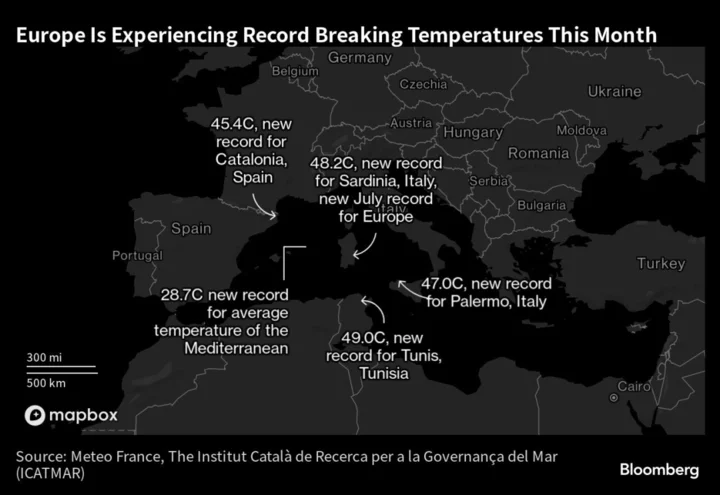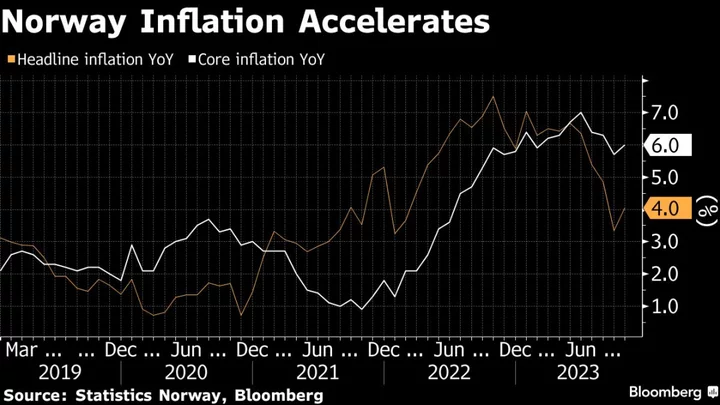Greece is fighting almost 200 wildfires as strengthening winds present an additional challenge, even as the heat wave across the Mediterranean eases.
More villages in mainland Greece were evacuated on Thursday as blazes threatened, while two people died in Velestino. A woman was found inside her charred caravan, and a farmer was killed after trying to rescue livestock in a forest. A fire in the northern Athens suburb of Kifisia was quickly contained, but those on the island of Rhodes are burning for a 10th day.
Strong winds are hampering efforts to contain wildfires burning across the Mediterranean from Algeria to Turkey, after record heat this month followed the world’s hottest June. In Spain, the risk of fires increased overnight, with many parts of Madrid and surrounding areas now under the highest alert. More heat will build over the Iberian peninsula toward the end of next week.
Scientists say the extreme heat seen across the Northern Hemisphere from the US to China this month would have been “virtually impossible” without climate change. As rapidly warming seas and retreating Antarctic ice signal the risk of an approaching climatic tipping point, many leaders are still dragging their feet on curbing the use of fossil fuels that generate greenhouse gases.
In Asia, the World Meteorological Organization found that $36 billion was lost in economic damages because of extreme weather last year, with the severity and intensity of such events set to increase.
Fires across Greece have led to the evacuation of thousands of tourists since Saturday, threatening the livelihoods of locals who depend on summer visitors.
Greece’s Tourism Minister Olga Kefalogianni told state-run ERT that most of island of Rhodes is operating normally. A large number of tourists that were evacuated last weekend have even returned to their hotels, especially in the Lindos area, she said.
At the same time, coastguard vessels and standing by off Rhodes, Corfu and central Greece to evacuate people from beaches should nearby wildfires flare.
Cooler weather is dominating over northern Europe, with temperatures in Germany, France and Nordic countries below seasonal averages. Berlin will dip as low as 12C (53.6F) today, almost 4C below the norm, according to forecaster Maxar Technologies Inc.
Although the UK is also experiencing colder weather, last month’s heat wave produced the country’s hottest June on record. A new report from the Met Office found that last summer’s record-breaking temperatures of above 40C could be considered normal by 2060 and even cool by 2100.
“As our climate warms, we expect far more high temperature records to be broken, potentially by wide margins, and far fewer low temperature records,” Mike Kendon, senior scientist at the Met Office, said in a statement.









